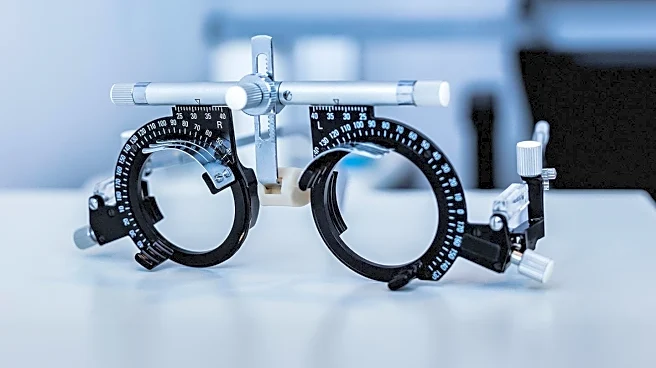What's Happening?
Research from McMaster University and the Population Health Research Institute suggests that retinal scans could serve as a non-invasive tool to evaluate cardiovascular health and biological aging. Published
in Science Advances, the study analyzed retinal images, genetic profiles, and blood samples from over 74,000 participants. Findings indicate that individuals with simpler retinal vessel structures are more likely to have cardiovascular disease and show signs of accelerated aging. The study highlights the potential of retinal imaging to simplify the evaluation of aging-related conditions, offering a fast and accessible measure of both aging and cardiovascular risk.
Why It's Important?
This research underscores the potential of retinal imaging as a transformative tool in preventive healthcare. By providing a non-invasive method to assess cardiovascular health and biological aging, retinal scans could revolutionize how these conditions are diagnosed and managed. The ability to detect early signs of cardiovascular disease and aging could lead to more timely interventions, reducing the burden of these conditions on healthcare systems. Additionally, the study identifies molecular pathways and potential drug targets for slowing vascular aging, which could pave the way for new therapeutic strategies to improve lifespan and reduce cardiovascular disease prevalence.










